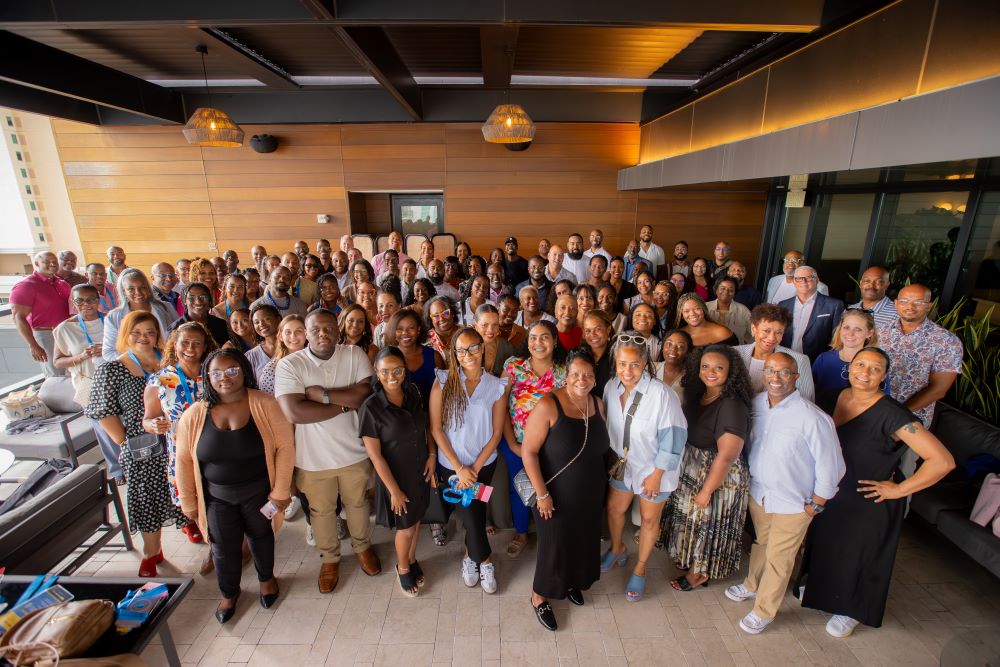Before the end of the year, Destinations International (DI) will launch a new online certificate program for destination organization sales and services professionals designed to help them better collaborate with meeting and event planners.
There are three courses for destination marketing professionals depending on their job function: a sales course, services course and marketing and communications course.
- The sales course will provide destination sales professionals with skills and strategies to help them effectively utilize destination resources, better understand the sales process and provide best practices for working with meeting and event planners.
- The services course will focus on helping destination services professionals manage all aspects of event service delivery, from logistics to attendee experience, including risk mitigation, sustainability, attendance-driving techniques and communication strategies.
- The marketing and communications course will introduce destination professionals to business event marketing strategies focusing on brand engagement and event attendance.
Additionally, DI will provide planners resources to complement the training provided to destinations, ensuring both sides are unified in understanding best practices for working together. These resources will be expanding in 2025, providing everything from checklists of best practices to real-life destination success stories and case studies. Some of these resources include titles such as "10 Tips for Destination Selection Site Visits," "10 Tips to Drive Attendance to Your Event" and "10 Tips for Event Planning Site Visits."

"With all the shifts we’ve seen in the industry over the last several years, we recognized the need to focus on onboarding, upskilling and reskilling the destination sales and services workforce," said Emily Scheiderer, senior director of education, sales and services for DI. "So many roles have changed or evolved, and DI remains committed to supporting individuals in gaining the skills and insights needed to bring maximum value to incoming events and their local communities."
The need for more resources to help planners work with destination organizations came out of feedback from DI’s Planner Influencer Board, an initiative started by DI to help it gain a better understanding of how DMOs can become more valuable partners for meeting professionals.
A key point in this year’s feedback was that while the workforce is in transition between older and younger generations, amid the economic and political challenges of the current landscape, there was a need to provide more resources to destination professionals and planners to help them work together more effectively.
"If planners and destination representatives aren’t on the same page, we can’t fully achieve success for all," Scheiderer added. "That’s why we prioritized including our Planner Influencer Board’s feedback and creating a shared space for resources—an effort we began in 2024 and will continue to expand in the coming year."
And while DI has launched initiatives that colleges and universities can take advantage of to educate the next generation of planners and destination professionals, even the most seasoned industry veterans are not always aware of the best collaboration methods for planners and destination professionals. DI hopes these tools will not only be used by the industry’s youngest professionals, but by the entire workforce.
DI Tampa Case Study Promotes Active Engagement Over Boycotts
When Destinations International (DI) announced that Tampa, Florida, would be the location of its 2024 annual convention, the organization received pushback from those in the industry who were upset at the organization’s choice of destination.

Many in the industry felt as though anti-DEI legislation passed in Florida should bar the state from receiving the business, support and attention from the world’s largest association of destination management organizations.
In response to calls for DI to boycott Florida and move the event to another state, the organization instead opted to keep the event in Tampa but release a 45-page report detailing the initiatives and steps it took to make a positive and enduring impact on the local community through embracing diversity, demonstrating that active engagement can oftentimes be more impactful than boycotting.

The Tampa Case Study explores the consultations, strategy, planning, implementation and outcomes of this engagement, and proposes that the event succeeded in fostering meaningful connections, making an impact and leaving a positive legacy.
According to the case study, the Annual Convention integrated seven of the United Nations’ Sustainable Development Goals (SDGs) to emphasize quality education, gender equality, economic growth, reduced inequalities, peace and justice, sustainable communities and partnerships.
The study is divided into five parts that detail strategic planning leading up to the annual convention, the convention itself and a post-event assessment and an analysis of the even’ts overall impact. It’s accompanied by a detailed toolkit that provides actionable guidance for meeting and event planners and destination organizations to implement similar inclusive strategies when hosting events.
"Our vision extends beyond a single convention to creating a lasting imprint of inclusivity in Tampa and a model for others to follow," said Sophia Hyder Hock, DI’s chief inclusion officer and lead author of the report. "We sincerely hope this case study and toolkit serve as an informative and actionable document for destination organizations, event strategists, policy makers and anyone seeking to unleash the potential of travel to benefit local communities and foster social inclusion."
The full report, "Tampa Case Study: Empowering Communities Through Inclusive Business Events," and the accompanying toolkit can be found at www.destinationsinternational.org/tampa-case-study.







